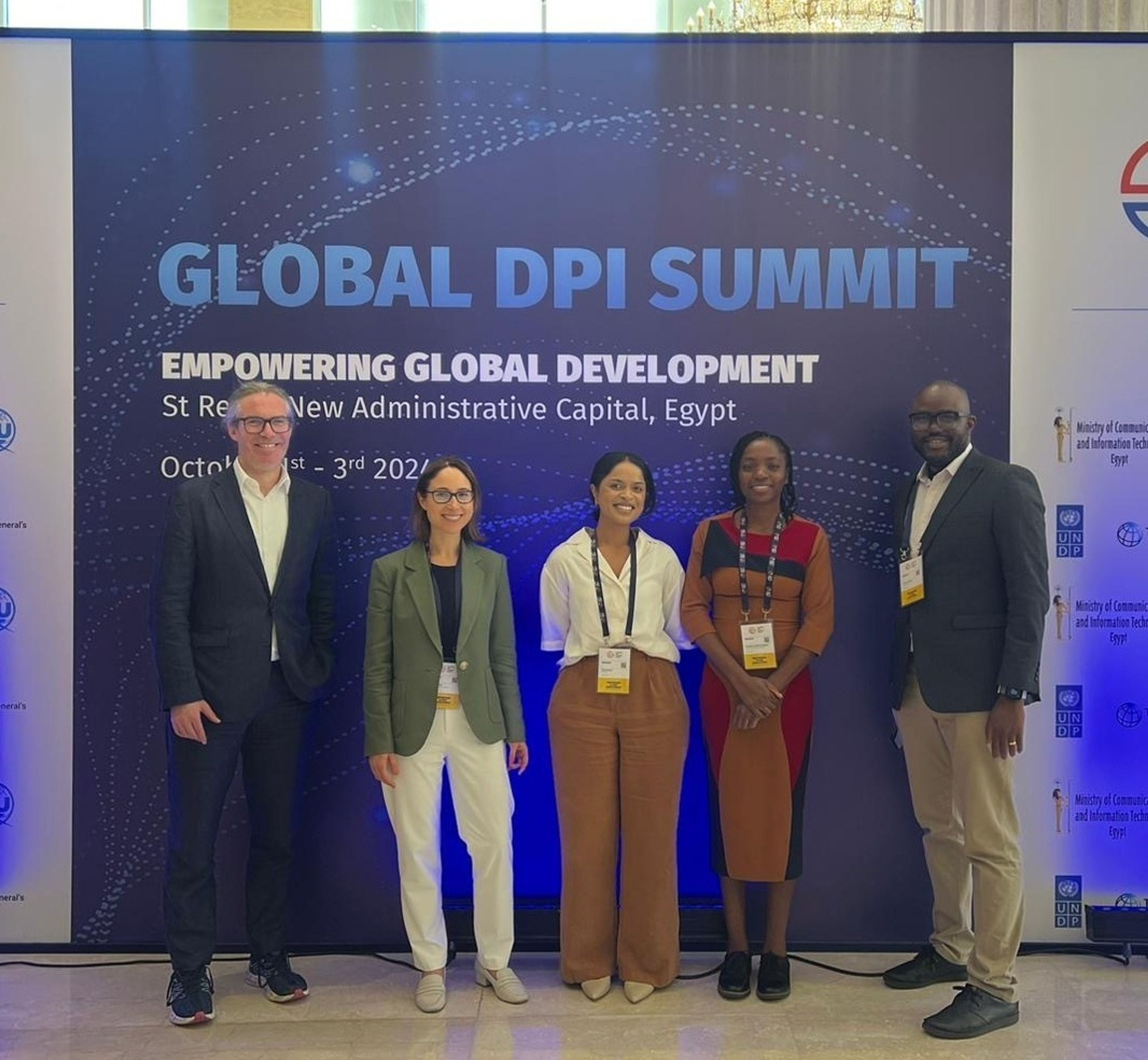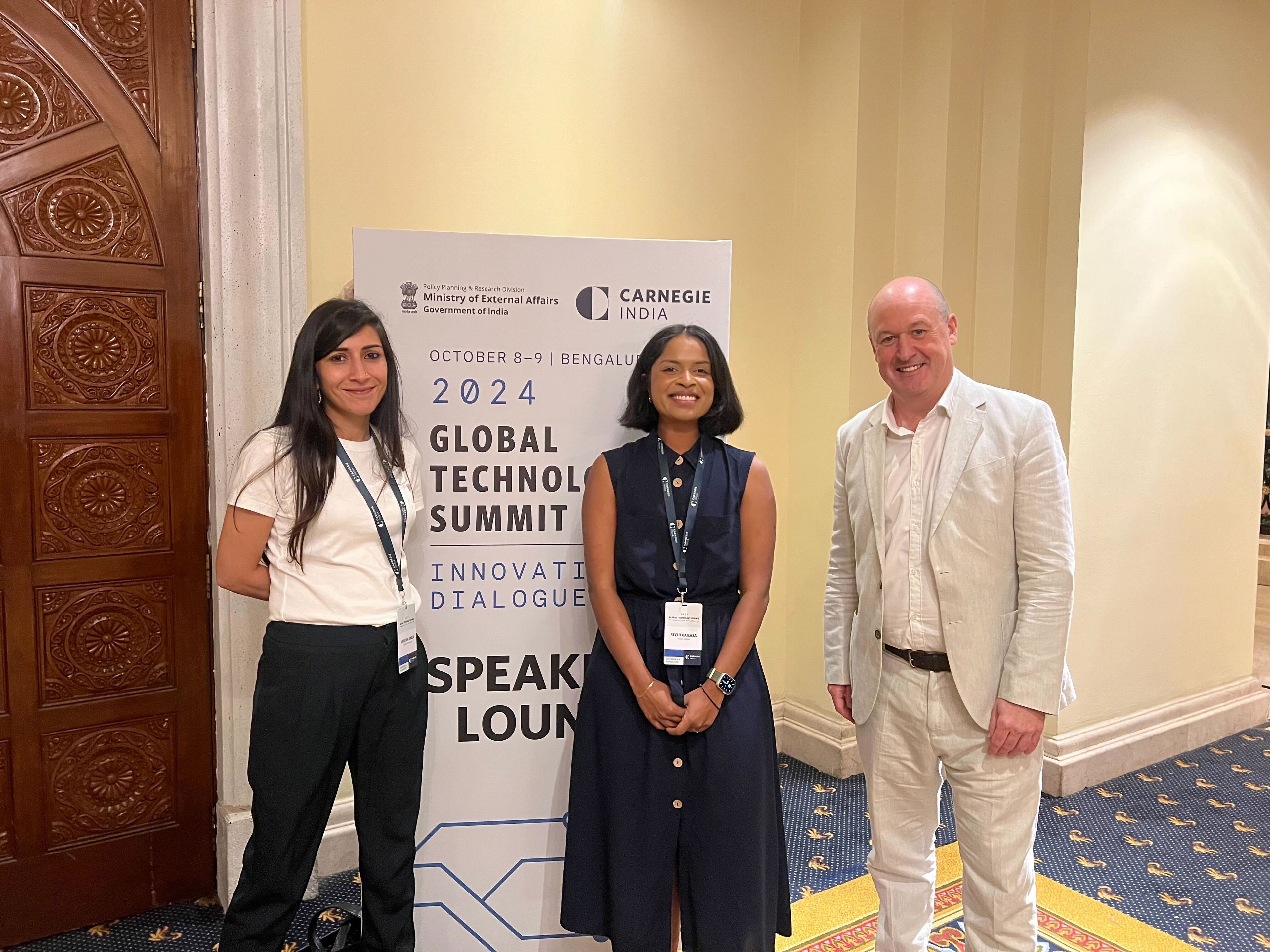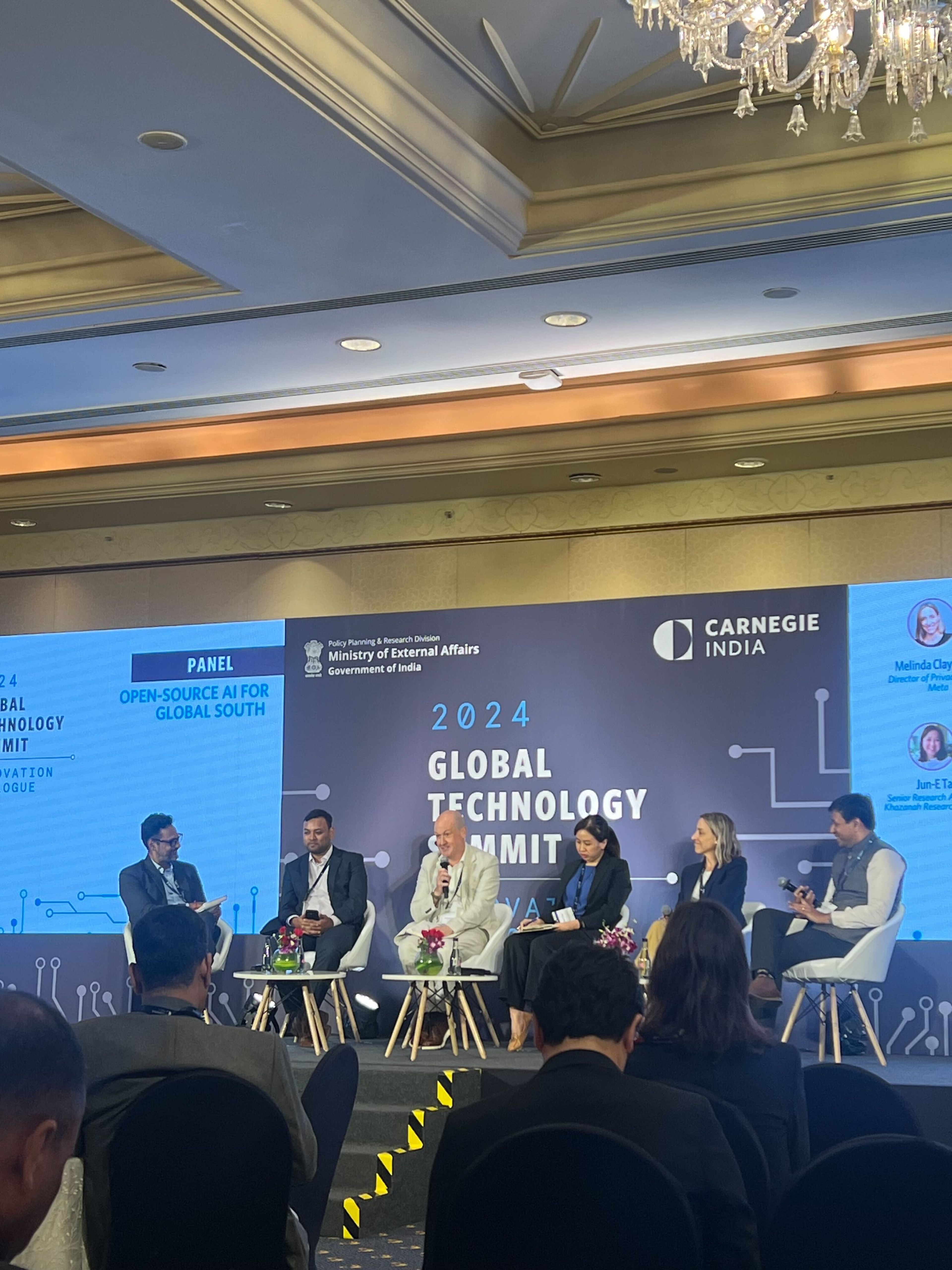
Highlights from the Global Technology Summit Innovation Dialogue in Bangalore
In October, Mike and I attended the Global Technology Summit Innovation Dialogue, organised by Carnegie India in Bangalore.
The Dialogue brought together a range of experts and leaders from across the world for a two-day workshop focused on Digital Public Infrastructure (DPI) and setting up India’s AI Safety Institute.

Shaping markets to accelerate DPI
The first workshop focused on DPI and explored how to operationalise and scale efforts across the globe.
At the Global DPI Summit, which took place earlier in October, Nandan Nilekani opened the event with the observation that in order to scale and operationalise DPI, governments should consider outsourcing the ‘doing’ i.e., the implementation, whilst ensuring they remain in charge of the ‘thinking’ behind DPI efforts.
In the same spirit, the Innovation Dialogue in Bangalore invited a range of delivery partners to the emerging DPI ecosystem (the first of its kind to do so) from hyperscale cloud providers to global system integrators and local independent software vendors. To date, there have been differing levels of engagement from private players – whilst some are just joining the conversation, others are now launching ‘DPI in a box’ efforts on their platforms.
As the market matures, diversity in delivery partners will be key to scaling sustainable DPI efforts. That means ensuring the involvement of both global and local players, and acknowledging the fact that there are a myriad of pathways to outsource the ‘doing’. Additionally, as part of governing the ‘thinking’ behind DPI efforts, governments must consider the role and opportunity they have in shaping the emergent digital market. Mike has since written about what other countries can learn from the UK’s experience of shaping the digital market, and the tools they can use to avoid the oligopolistic pathways that governments risk developing.
There is value in the view that governments must take control of the ‘thinking’ behind DPI and outsource the ‘doing’ (not least because it allows us to understand how using different partners can accelerate digital transformation). But we should be mindful that the demarcation of government’s responsibility between ‘thinking’ versus ‘doing’ may not be clear cut.
In previous waves of government digital reform, this demarcation has led to brain drain from the public sector, and a failure to develop internal capabilities required for sustainable and impactful digital transformation. So it feels important to keep in mind that the government also needs to develop capabilities in ‘doing’ which will inform how it ‘thinks’.
India’s AI safety institute
Day two of the Dialogue focused on India’s AI Safety Institute, which India’s government aims to set up in the coming months.
Organisations of this kind are typically dedicated to evaluating and ensuring the safety of advanced AI models. The scope of India’s Institute, however, is yet to be determined, and the workshop was aimed at fielding thoughts. We started the day by hearing from representatives of AI Safety Institutes in the UK and US. Whilst it is important to recognise their experiences and to promote the alignment and collaboration of peer organisations working towards AI safety, the launch of India’s Institute is also an opportunity to ensure that the needs of the Global South are more fully acknowledged on the international stage.
For this reason, India’s institute could benefit from having a different, but complementary focus in relation to AI safety, such as evaluating the post deployment impact of models – an issue which is already impacting labour markets in the South. The institute could also play a fundamental role in experimenting with new approaches and topics.
Open, interoperable public sectors to drive growth – an opportunity for policy makers
In the afternoon, Mike participated in a panel on Open Source AI for the Global South. The idea and definition of Open Source AI is disputed and Mike warned against embracing the concept of openness being touted by big players in the AI space – particularly in light of the opposition many of the same companies historically held toward open-source initiatives. He also urged us to be wary of the argument that openness should be avoided due to the risk of bad actors.
Mike advocated for an open, interoperable public sector as a foundation for growth — a model that has the potential to be impactful in both the Global North and South. However, unlike the G7 nations, where policymakers are now often locked into using closed, proprietary systems, leaders in the Global South have a unique opportunity to shape a more open and equitable AI and digital landscape.
To achieve this vision, he stressed the importance of policy makers making deliberate, strategic choices around openness. Policymakers in the Global South must consider the kind of openness they want and can benefit from and leverage available tools like regulatory changes, mandates and regional cooperation. You can watch the full video of the panel here.

India's potential to redefine the digital market landscape
We were thrilled to be invited by Carnegie to the Dialogue. It was an opportunity to meet old friends and make some new ones.
We’re looking forward to seeing the role that India chooses to adopt as it sets up its AI Safety Institute and as it continues to spearhead the DPI story. India has the potential to deliver impact not only for the Global South but also globally, particularly if it ensures markets positively influence and enable societal outcomes.
Written by

Sechi Kailasa (Maternity leave 2026)
Director

Mike Bracken CBE
Founder
